Yes, it is safe to drink from a silicone water bottle. Silicone is non-toxic and free of harmful chemicals.
Silicone water bottles have become a popular choice for health-conscious individuals. Made from food-grade silicone, they are free from BPA, phthalates, and other harmful chemicals found in some plastics. Lightweight, flexible, and durable, these bottles are perfect for on-the-go hydration.
They are also dishwasher safe, making them easy to clean and maintain. With their eco-friendly benefits, silicone water bottles help reduce plastic waste. Whether you’re at the gym, office, or outdoors, a silicone water bottle is a safe and practical option. Choose a high-quality silicone bottle to ensure safety and longevity.
Introduction To Silicone Water Bottles
Silicone water bottles are becoming a popular choice for hydration. They offer durability and flexibility. These bottles are eco-friendly and safe for daily use. But is it safe to drink from a silicone water bottle? Let’s explore.
The Rise Of Silicone In Everyday Products
Silicone is now common in many household items. You can find it in kitchenware, baby products, and even medical devices. This material is known for its flexibility and heat resistance. It’s also free from harmful chemicals like BPA.
Many people choose silicone because it’s durable. Unlike plastic, it doesn’t break easily. This makes it perfect for reusable items. Silicone is also easy to clean. You can wash it in the dishwasher without worry.
Comparing Materials: Silicone Vs. Plastic
| Feature | Silicone | Plastic |
|---|---|---|
| Durability | Very durable | Less durable |
| Flexibility | Highly flexible | Rigid |
| Safety | Free from BPA | May contain BPA |
| Cleaning | Dishwasher safe | Not always safe |
| Environment | Eco-friendly | Less eco-friendly |
Silicone offers many benefits over plastic. It is safer and more durable. It’s also better for the environment. Plastic can break easily and may contain harmful chemicals. Silicone is a better choice for a reusable water bottle.
Chemical Composition Of Silicone
Understanding the chemical composition of silicone helps us know its safety. Silicone is a popular material for water bottles. It is flexible and durable. Let’s dive into what makes up silicone and how it reacts with water.
What Is Silicone Made Of?
Silicone is made from silicon, oxygen, carbon, and hydrogen. Silicon comes from sand or quartz. The process turns these raw materials into a rubber-like substance. The key components include:
- Silicon: A natural element found in sand and rocks.
- Oxygen: Combines with silicon to form silicon dioxide.
- Carbon: Adds flexibility and strength.
- Hydrogen: Stabilizes the silicone structure.
The combination of these elements forms a stable, inert material. Silicone does not easily react with other substances. This makes it a safe choice for water bottles.
How Silicone Reacts With Water
Silicone is non-reactive with water. It does not break down or leach chemicals. This quality makes silicone water bottles safe for everyday use. Here are the key points:
| Property | Description |
|---|---|
| Non-reactive | Does not chemically react with water. |
| Stable | Maintains integrity under various temperatures. |
| Inert | Does not release harmful substances. |
Water stored in silicone bottles remains pure and uncontaminated. This ensures the safety and health of the user. Silicone’s inert nature means it won’t absorb odors or tastes. Your water stays fresh and clean.
Health Concerns And Safety Standards
Silicone water bottles are popular for their flexibility and durability. People often wonder if drinking from them is safe. This section addresses health concerns and safety standards related to silicone water bottles.
Fda’s Stance On Silicone
The Food and Drug Administration (FDA) regulates materials used for food and drink containers. The FDA has approved food-grade silicone as safe for use. This means it doesn’t contain harmful chemicals. You can trust that food-grade silicone won’t release toxins into your water.
The FDA tests these materials under various conditions. They ensure that silicone remains safe even when exposed to heat or cold. This makes silicone water bottles a reliable choice. You can enjoy your drink without worrying about chemical leaching.
Long-term Health Effects Of Drinking From Silicone Bottles
Studies have shown that drinking from silicone bottles is safe over the long term. Silicone is non-reactive and doesn’t break down easily. This means it won’t release harmful substances into your water.
- Durability: Silicone bottles are durable and last a long time.
- Non-toxic: They are free from BPA, phthalates, and other toxic materials.
- Heat-resistant: They can withstand high temperatures without degrading.
Many people worry about the taste of water in silicone bottles. Studies show silicone doesn’t affect the taste of water. This makes silicone a preferred choice for many.
Silicone water bottles are a safe and healthy option. They meet safety standards set by regulatory bodies. They offer long-term health benefits without any risks.

Credit: www.amazon.com
Environmental Impact
Silicone water bottles are gaining popularity. They are reusable and durable. But what is their environmental impact?
Silicone In The Environment
Silicone is a synthetic material made from silica. Silica is a natural compound found in sand. This means silicone has a natural origin. But, it is not biodegradable. It can last for hundreds of years in the environment.
Silicone does not break down into harmful chemicals. This makes it safer than plastics. Plastics can release toxic chemicals as they degrade. Silicone is also resistant to extreme temperatures. This makes it less likely to break down under normal conditions.
Recycling And Sustainability Of Silicone Products
Recycling silicone is possible, but not always easy. Not all recycling centers accept silicone products. You need to check with local facilities. Yet, silicone can be reused in creative ways. For example, old silicone can be repurposed into new items.
Silicone products have a long lifespan. This reduces the need for frequent replacements. Using a silicone water bottle means fewer plastic bottles. This helps reduce plastic waste. Sustainability improves when we use long-lasting materials.
Here is a table comparing silicone and plastic:
| Feature | Silicone | Plastic |
|---|---|---|
| Origin | Natural (Silica) | Petroleum-Based |
| Biodegradable | No | No |
| Recycling | Possible (Limited) | Widely Available |
| Durability | Very Durable | Less Durable |
| Chemical Safety | Non-toxic | Can be Toxic |
Reusable silicone water bottles are environmentally friendly. They reduce waste and last longer. This makes them a better choice for the planet.
Durability And Usability
Silicone water bottles are becoming popular due to their durability and usability. They are perfect for those with an active lifestyle. These bottles offer a long lifespan and are easy to maintain. Let’s explore these aspects in detail.
Lifespan Of Silicone Water Bottles
Silicone water bottles have a high durability. They can last for several years. Unlike plastic, silicone does not degrade quickly. It can withstand extreme temperatures without breaking down. This makes it suitable for both hot and cold drinks.
Here is a table to compare the lifespan of different materials:
| Material | Average Lifespan |
|---|---|
| Plastic | 1-2 years |
| Glass | 5-10 years |
| Silicone | 10-15 years |
Ease Of Use And Maintenance
Silicone water bottles are very easy to use. They are lightweight and flexible. This makes them easy to carry in a bag.
Cleaning these bottles is also simple. They are dishwasher safe. You can also wash them by hand with soapy water. Here are some quick tips for maintaining your silicone water bottle:
- Wash it after every use.
- Dry it completely before storing.
- Inspect for any signs of wear and tear.
Following these steps ensures your bottle stays clean and lasts longer. Silicone water bottles are a great investment for anyone.
Credit: www.reddit.com
Comparative Analysis With Other Materials
Silicone water bottles are popular for their flexibility and durability. But how do they compare to other materials like glass and stainless steel? Let’s dive into a comparative analysis to see the benefits and drawbacks of each.
Silicone Vs. Glass
Silicone water bottles are lightweight and flexible. This makes them easy to carry and store. In contrast, glass bottles are heavier and more fragile. Dropping a glass bottle can result in breakage. This is a concern for safety and convenience.
- Weight: Silicone is lighter than glass.
- Durability: Silicone doesn’t shatter like glass.
- Temperature Resistance: Glass can handle very hot liquids.
- Taste: Glass is flavor-neutral, while silicone may retain some flavors.
Overall, silicone offers more durability and ease of use. Glass provides purity in taste but lacks portability.
Silicone Vs. Stainless Steel
Stainless steel bottles are known for their sturdiness and thermal insulation. They keep liquids hot or cold for longer periods. But they are heavier and less flexible compared to silicone bottles.
| Feature | Silicone | Stainless Steel |
|---|---|---|
| Weight | Light | Heavy |
| Flexibility | High | Low |
| Thermal Insulation | Low | High |
| Durability | Moderate | High |
Silicone bottles are easier to pack and carry. Stainless steel bottles are better for temperature control. Choose based on your needs and lifestyle.
Consumer Reviews And Experiences
Many people ask, “Is it safe to drink from a silicone water bottle?” To find out, we gathered consumer reviews and experiences. Here’s what users think about the safety and usability of silicone water bottles.
Testimonials On Safety And Usability
Users often praise the safety of silicone water bottles. Many feel reassured knowing these bottles are free from harmful chemicals like BPA.
- “I feel safe drinking from my silicone bottle every day!” – Sarah J.
- “No weird taste or smell. It’s very safe.” – Mark L.
- “My kids love them, and I trust they are safe.” – Emily R.
In terms of usability, these bottles receive high marks for being lightweight and flexible. Users appreciate that they are easy to carry and store.
- “It fits perfectly in my bag.” – Jane D.
- “So easy to clean and use!” – Oliver T.
- “Very convenient for travel.” – Chris K.
Common Complaints And Praises
Common complaints include issues with durability. Some users report their bottles showing wear and tear sooner than expected.
| Complaint | User Feedback |
|---|---|
| Durability | “My bottle tore after a few months.” – Ashley P. |
| Leakage | “It started leaking after a few uses.” – John H. |
On the flip side, many users praise the eco-friendly nature of silicone bottles. They love that these bottles are reusable and reduce plastic waste.
- “Great for the environment!” – Lisa B.
- “I feel good using a reusable bottle.” – Paul M.
- “Eco-friendly and stylish.” – Anna V.
Users also commend the ease of cleaning. They find silicone bottles easy to wash, even in a dishwasher.
| Feature | User Feedback |
|---|---|
| Easy Cleaning | “I toss it in the dishwasher, and it’s clean!” – Megan W. |
| Hygienic | “No mold or mildew issues.” – Luke F. |
Final Thoughts And Recommendations
Drinking from a silicone water bottle can be safe and convenient. Silicone is durable, flexible, and free from harmful chemicals. It is a good choice for health-conscious individuals.
Best Practices For Using Silicone Water Bottles
- Clean your bottle regularly to prevent bacterial growth.
- Avoid using harsh chemicals. Mild soap and water work best.
- Check for wear and tear periodically. Replace if damaged.
- Store it properly. Keep it dry and away from direct sunlight.
Future Of Drinking Containers
The future of drinking containers is exciting and evolving. Companies are focusing on sustainability and health. Silicone water bottles fit well into this vision.
| Material | Benefits | Drawbacks |
|---|---|---|
| Silicone | Durable, flexible, non-toxic | May retain smells |
| Stainless Steel | Long-lasting, keeps drinks cold | Heavier, more expensive |
| Plastic | Lightweight, inexpensive | May contain BPA, less durable |
Innovations in materials will continue to improve the safety and convenience of drinking containers. Silicone bottles are a strong contender for daily use.

Credit: www.walmart.com
Frequently Asked Questions
Are Silicone Water Bottles Safe?
Yes, silicone water bottles are generally safe. They are made from food-grade silicone, free from harmful chemicals.
Do Silicone Bottles Contain Bpa?
No, silicone water bottles do not contain BPA. They are BPA-free, making them a safer alternative to plastic bottles.
Can Silicone Bottles Withstand High Temperatures?
Yes, silicone bottles can withstand high temperatures. They can be used for both hot and cold beverages without degrading.
Are Silicone Bottles Eco-friendly?
Yes, silicone water bottles are eco-friendly. They are reusable and reduce the need for single-use plastic bottles.
How Do You Clean A Silicone Water Bottle?
You can clean a silicone water bottle with warm, soapy water. They are also dishwasher safe for easy cleaning.
Do Silicone Bottles Retain Odors?
No, silicone bottles do not retain odors. They are non-porous, which prevents them from absorbing smells or flavors.
Conclusion
Silicone water bottles are generally safe for everyday use. They are durable, non-toxic, and eco-friendly. Always choose high-quality, food-grade silicone for peace of mind. Regular cleaning keeps them hygienic and long-lasting. Opt for silicone bottles and enjoy a safe, sustainable, and convenient hydration solution.

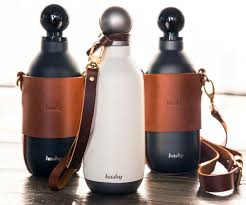
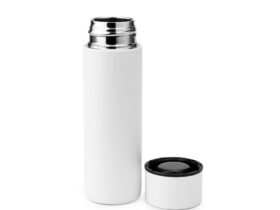
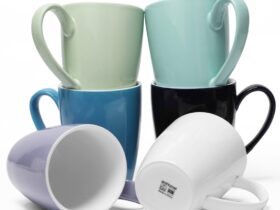
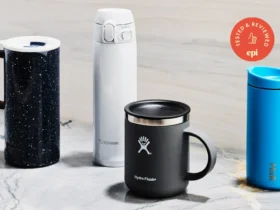

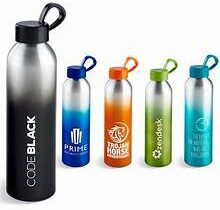
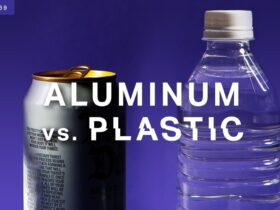
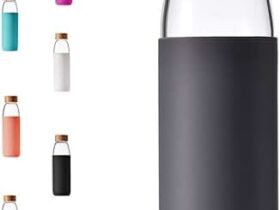
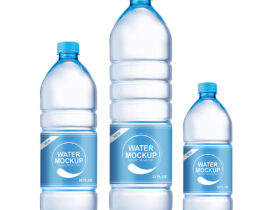

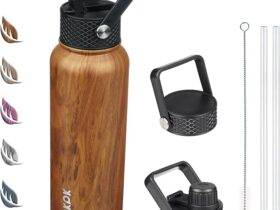
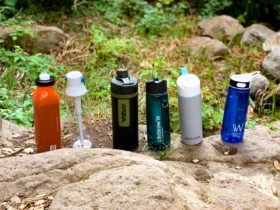
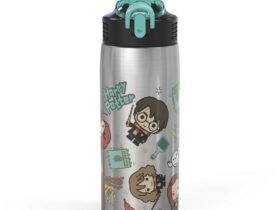

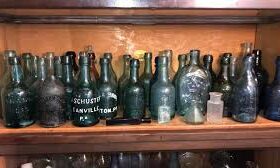
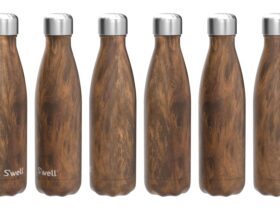

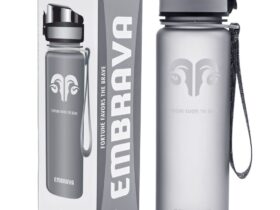
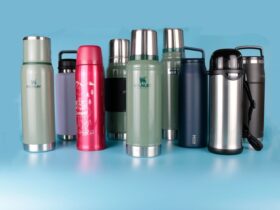
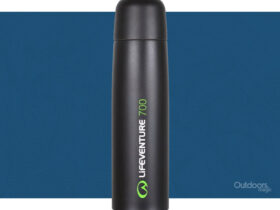
Leave a Reply